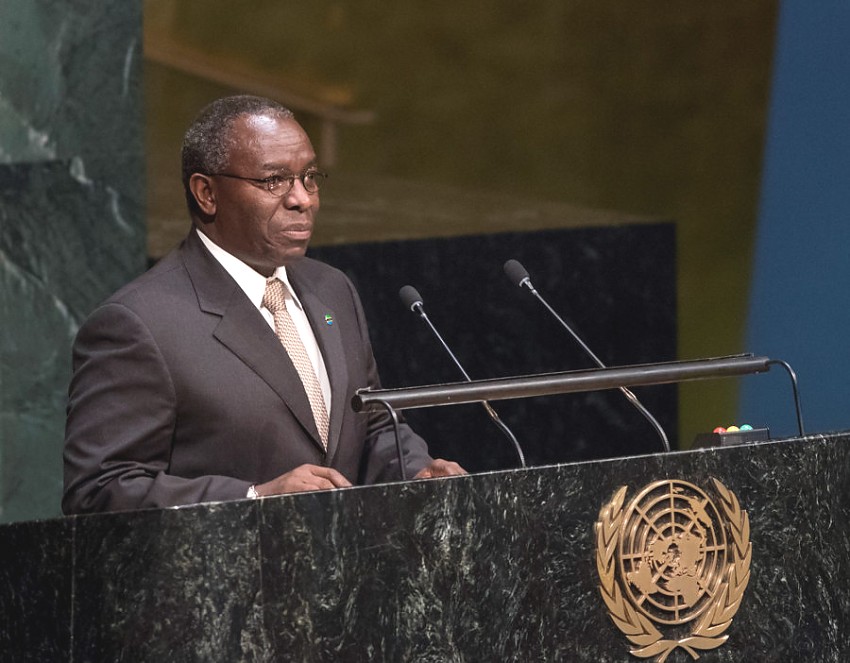Mr. President,
The United Republic of Tanzania associates itself with the statement by the Minister of Telecommunications and Postal Services of South Africa on behalf of the G77 and China.
We also join in welcoming the convening of this meeting on the review of the implementation of the outcomes of World Summit on the Information Society.
We thank and commend the co-facilitators of the intergovernmental negotiations for their tireless efforts and outstanding leadership that led to a consensus on the Outcome document. We also thank delegations for their constructive engagement in the process and non-governmental stakeholders for their inputs.
The last decade has witnessed tremendous increase in ICTs connectivity, access and innovation. These developments have created important enabling framework for reducing poverty and addressing other chronic development challenges. Despite this growth, enormous gaps remain between developed and developing countries; between urban and rural inhabitants; and between men and women.
It is imperative therefore that we must exert every effort to bridge the persisting gaps. This must be done by creating conducive environment and strengthening multi-stakeholder cooperation. We should also take full advantage of the policy and financing mechanisms and initiatives such as the Universal Service Funds other public private partnerships.
Most developing countries, such as mine would benefit a great deal from the Technology Facilitation Mechanism. We see its immense potential in enhancing ICTs for development in our countries. In this regard, we call for the full alignment of the WSIS process and the Addis Ababa Action Agenda, especially the Technology Facilitation Mechanism.
Tanzania attaches great importance to ICT development. We are working tirelessly and collaboratively with local and foreign partners to address the ICT needs of our people. Noting the importance of infrastructure, the Government has built the National ICT Broadband Backbone (NICTBB), which is being implemented in five phases. With the completion of the second phase, the fibre optic backbone has covered a total of 7,560 km, reaching every administrative district in the Country.
Our efforts in advancing ICT development have led to a substantial increase in mobile and broadband services. As a result, there are currently 34 million mobile subscribers and 11 million internet users. In our case, ICT applications are to be found in a abroad range of areas; including government, education, health, agriculture, banking, employment, trade, tourism, postal services, transportation, among others. Moreover, as of June 2015, the contribution of the ICT sector to National Gross Domestic Product (GDP) had reached 3.9 per cent.
Consequently, in our case, there is no denying that ICT is having considerable impact on our people and their livelihood. It has empowered thousands of men and women through mobile financial services (M-Banking); it has exposed hundreds of students to unlimited online and offline educational materials; and transformed dreams of many young entrepreneurs and innovators into a reality.
It is incumbent upon us therefore that we continue to strive for broader and sustainable access to quality and affordable ICTs for all. We are mindful that we are availed a unique opportunity to achieve this goal in the context of the 2030 Agenda for Sustainable Development. An agenda that recognizes ICT as a crosscutting enabler for accelerating progress of all 17 Sustainable Development Goals.
We must therefore address the digital divide to facilitate fulfilment of the goals. In doing so, we must ensure safe and secure use of ICTs. We are concerned about the increased negative application of ICTs for harmful activities such as cyber-crime, terrorism, invasion of privacy, the spread of hate speech, bigotry and intrusive behaviour. Weaknesses in these areas need our urgent attention in order to promote greater public confidence in ICTs.
Indeed, we are witnessing how ICTs are changing our ways of life; increasingly transforming how we interact with each other, and how we spend our time. As a result, some are becoming prone to non-communicable diseases due to physical inactiveness, while others are becoming less productive due to net – and – social media addiction, or too detached from reality and thus less effective in resolving social and communal challenges.
The totality of these challenges signifies the imperative of collective action. We must strive to promote responsible and sustainable use of ICTs for development. We must work to prevent abuses including through effective regulations. At the same time, we need to undertake research to ascertain the magnitude of the problem and offer credible solutions. We must also endeavour to inculcate into the minds of our youth a culture of peace, tolerance and mutual respect.
Allow me to conclude by reaffirming Tanzania’s commitment to the outcomes of the WSIS. We also reassert our belief in the principle of multi-stakeholder co-operation and engagement as an enduring pillar of the WSIS process. We commend the ITU for its continued efforts, especially in area of infrastructure development and capacity building. Finally, we wish to express our endorsement of the outcome of this meeting.
I thank you.
